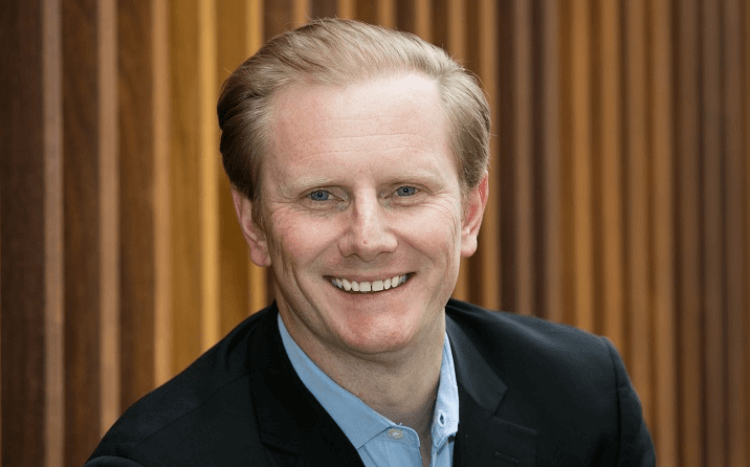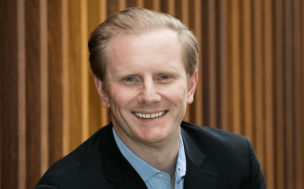Finance is a far cry from Paul’s time in the Navy when he operated nuclear reactors aboard submarines and aircraft carriers. He says he spent that 10 years of his life in a high-stress environment, with zero room for error.
Little did he know then that his experience in that environment, along with the quick decision-making skills he developed, would serve him well when he eventually landed on the MBA.
The path to the MBA
After 10 years, Paul says he was ready to leave the military and return to “normal” life. His background in the US Navy, with electrical and nuclear engineering training, meant he was able to easily find jobs in the energy sector.
Paul held roles as an operations specialist and senior analyst for the clean energy firms First Solar and Sempra Renewables. He also worked for Panasonic in the US but felt something was missing.
“I quickly learned that if I wanted to understand the engineering of a business, then an MBA is the training that provides you with that insight,” he says.
Paul opted for the Online MBA at Temple University’s Fox School of Business. He says the school came highly recommended to him, and he was impressed with the array of professors and staff. They came from a multitude of backgrounds ranging from Fortune 500 companies to foreign relations committees.
Paul adds that he works well in a fast-paced environment, and the Online MBA provided that in abundance.
“It also provided me with increased flexibility to work a full-time job and pursue education at the same time,” he says.
What lessons can you take from the military to the MBA?
When you’re in the military, Paul says the biggest thing you learn is to think beyond yourself. You have to also be able to absorb the maximum amount of information you can in the shortest amount of time possible.
“Your decisions must also have a positive influence on a large system of people—a facet of military life that’s applied to almost all roles,” Paul says.
Equipped with that mindset, he views his time in the military and the experience of pursuing an MBA as very similar.
Paul was exposed to finance, project management, personnel management, and supply chain logistics during his degree. He was taught that when it comes to decision-making, you have to consider all those aspects of a business.
There were, however, some valuable skills that Paul developed solely through the Online MBA, such as the ability to lead and manage diverse teams of people.
His international cohort in the Online MBA consisted of people from India, Australia, and China. Mixing with students from all over the world diversified his perspective.
“You have this melting pot of conflicting interests, everybody has to manage their own time for themselves, but at the same time we were all in it together—in the military that’s generally not what you experience in your own work environment,” Paul says.
The people Paul mixed with in the military did the same thing as he did, and that meant they operated in sync, as a single unit, he explains. The Online MBA, on the other hand, brought many different ideas, personalities, and logistical constraints to the table.
“We had to put extra emphasis on being available, compromising and talking through many solutions to find the best one.”
Transitioning to a career in finance
Believing that finance is the backbone of any business, Paul aligned himself with financial studies early into his MBA. “If you can understand how finance works,” he says, “you gain a lot of insight into how decisions are being made, and why companies prioritize certain things.”
After obtaining his Online MBA, Paul interviewed with the Federal Reserve Bank of Cleveland for a role in credit risk management. They liked the skills Paul brought to the table—a combination of project management experience from the military and a vast swathe of business knowledge obtained during his MBA.
“If it was not for my MBA, I don’t think I’d have been given consideration at all for this position,” explains Paul. The interview was a success, and Paul has been in his current role as a credit analyst for over a year.
Why an MBA is a great fit for members of the military
The training that military members receive is geared toward critical thinking and seeing the big picture, Paul explains.
You are constantly provided information about what’s going on with your fleet at large, what’s going on around the world, and decisions that are being made.
Paul thinks that an MBA fits that mindset well. In a business, one needs to be aware of how current affairs affect regional business units, what's going on with the business at large, and how decisions are made. It’s an easy transition from the military to the mechanisms that guide business decisions, he adds.
“An MBA allows you to explore all the options that exist in a business environment, so once you identify the one that is best suited to you, you’re ahead of the game because not only have you identified what it is that you like, but you’ve gained extra tools and insight on how to do that well.”
Read more Fox MBA stories:
What I Learned From My MBA Internship At The Hershey Company
From MBA To Entrepreneur: Launching My Own Consulting Business







